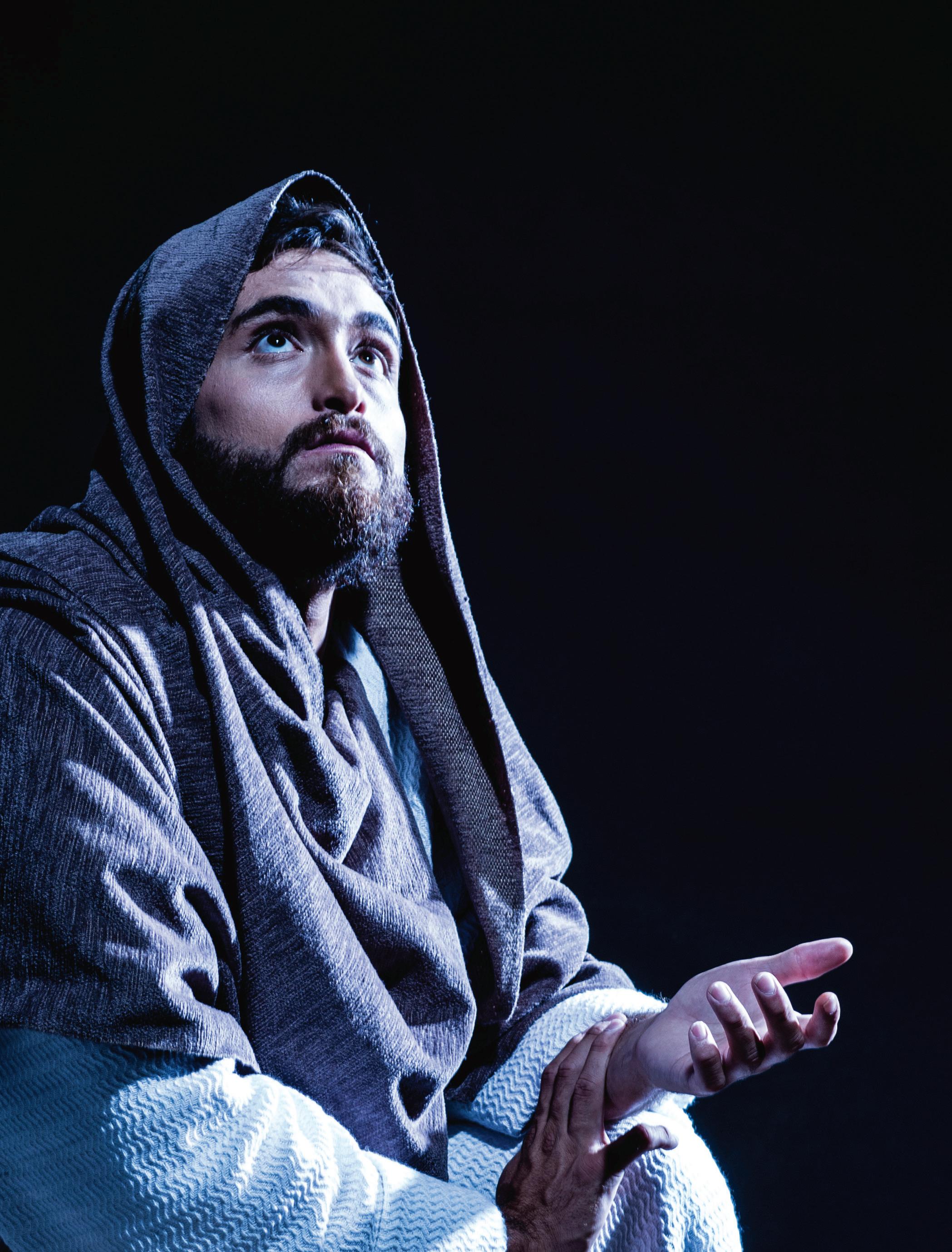
5 minute read
We Preach Christ
Christology, as mentioned by Dr. Justo González, is “the branch of theology that teaches about Christ. Its two traditional themes have been the person of Christ (who he is) and his work (how he saves us).”1 I can add that Christology is a part of theology that studies Jesus Christ as the incarnate Word and Son of God, our Savior and Redeemer, as taught in the Bible, which is presented to us by the faith of the church throughout history.
The Church of God of Prophecy, from its beginnings, has expressed the centrality and authority of Christ over the church and as the sovereign King of the universe. Following a tradition born of the New Testament and developed historically in the Christological councils, from Nicaea (325 AD) to Constantinople III (681 AD), which signifcantly infuenced the evolution of dogma, the Church affrms the following regarding the Lord Jesus Christ:
"We believe in one Lord, Jesus Christ, the only Son of God, eternally begotten of the Father. All things were made through Him and for Him. He is true God and true man. He was conceived by the power of the Holy Spirit and was born of the virgin, Mary. He suffered, died, was buried, and on the third day, He rose from the dead. He ascended to the right hand of the Father, and He will return to judge the living and the dead. His kingdom will have no end."2
Bishop
FERNANDO
LÓPEZ CRUZ, JR., DMIN | SAN JUAN, PUERTO RICO

This statement expresses the description ascribed to Jesus, the Son of God: who he is, his centrality, and the mission he had and has in the divine plan. We can say then that “in the depths of all Christian life and of any theological refection there beats consciously or unconsciously a certain Christology. Evidently, throughout life, the images and representations we have of Jesus or of Christ evolve, and they have been and are different.”3
The Threefold Offce of Jesus Christ
Although in the New Testament there are, according to Raymond E. Brown, “many other evaluations of Jesus: Rabbi (Teacher), Prophet, High Priest, Savior, Master or Lord, the Son, Son of Man, Son of God, and even God,”4 we can also fnd in the Bible the Christological teaching of the threefold offce of Christ over his church. The threefold offce (munus triplex) of Jesus Christ is a Christian teaching that has its basis in the Old Testament, and of which some Christians have differing points of view. It is said that one of the frst to describe this teaching was Eusebius of Caesarea, and it was further developed by the Reformer, John Calvin.5 The doctrine states that Jesus Christ performed three functions or “offces” in his earthly ministry: prophet, priest, and king. We can say that “the offces of Jesus Christ belong to the classic study of Christology, which relates his Person to his work. When we refer to the offces, we refer to what Christ did and continues to do for our salvation. So, we refer here to what Christ Jesus did in his state of humiliation and continues to do in his state of exaltation.”6
In the Old Testament, the appointment of anyone to any of these three offces could be sanctioned by anointing him with oil on his head. Therefore, the term Messiah, meaning “anointed,” is associated with the concept of the threefold offce. While the offce of king is the most closely associated with the Messiah, Jesus’ role as priest, which involves intercession before God, is also prominent in the New Testament, and it is explained in greater detail in the book of Hebrews, chapters 7–10.7 It is important to note that it has been customary in Protestant circles since the Reformation to talk about the work of Christ under three main titles: prophet, priest, and king.
Jesus Is the Prophet Par Excellence
The doctrine of the threefold offce of Christ affrms that Jesus is the prophet par excellence. Pablo Jiménez defnes a prophet as “a person that speaks in the name of God, calling the people to faithfulness. His message does not always speak of the future. Usually, he mentions the future only when he affrms that God is going to do something extraordinary or when he warns of possible judgment that comes with unfaithfulness to God.”8 Per Jiménez, Jesus is the prophet par excellence for two reasons. First, he is the one spoken of in the Old Testament prophecies and in whom they are fulflled. We fnd an example of this in the account of the wisemen’s visit in Matthew 2:1–6.
Secondly, as noted in John 7:45–46, Jesus is the great prophet “who speaks of God as no one has ever done before.”9
Jesus is referred to as prophet only in the Gospels. He is accepted as prophet by popular opinion (Mark 6:15; Matthew 21:11, 46; Luke 7:16; 24:19; John 4:19; 6:14; 7:40). “However, although the disciples do not call him a prophet with total clarity,” writes Casiano Floristán, “the words and gestures of Jesus have a marked prophetic accent, as can be seen in the beatitudes and in the theophanies of baptism and transfguration.”10 Therefore, Jesus “is a prophet because, with absolute fdelity to his mission and with uncompromising freedom, he announces the radical demands of God, with full lucidity about individual and social events.”11
Jesus Is the Great High Priest
The second offce that affrms the doctrine of Christ is that of priest. Not only is the priest dedicated and consecrated to make, celebrate, and offer sacrifces before God, but he is also the person who serves as mediator between God and humanity. Jiménez notes that “Jesus is ‘priest’ because he was the perfect victim offered in perfect sacrifce before God. Since Jesus gave his life voluntarily, he fulflled the role of ‘priest’ and the role of the lamb offered in sacrifce before God.”12 Thus, as affrmed by Hebrews 4:14–15, Jesus has become the great High Priest who intercedes before God for all of us.
Jesus, in his public life, had little contact with the priests, except at the time of the passion. Nevertheless, in the letter to the Hebrews, the title of “priest” or “high priest” is applied to Christ with a double distinction: Jesus does not belong to the Jewish priest lineage (7:3–14), nor is his worship ritualistic but “in spirit and truth” as “he offered himself” for the sake of humanity. Floristán comments, “The priesthood of Jesus is unique just as his sacrifce is unique. The death of Jesus is not carried out with the meticulousness of a sacred ritual, but with a dedication of total love until death, a true worship of God. In summary, Jesus is the high priest because he became like those who suffer, died for the love of justice, and surrendered himself faithfully to God.”13
Jesus is the King of Kings
Thirdly, the threefold doctrine of Christ affrms that Jesus fulflls the offce of king over all creation. A king is the sovereign monarch of a kingdom. Jiménez reminds us that, in this case, the kingdom of Christ is God’s presence and rule over the world. That Jesus is king is affrmed in Scripture: “Wherefore God also hath highly exalted him, and given him a name which is above every name: that at the name of Jesus every knee should bow, of things in heaven, and things in earth, and things under the earth; and that every tongue should confess that Jesus Christ is Lord, to the glory of God the Father” (Philippians 2:9–11). The book of Revelation also
Continue on page 29










